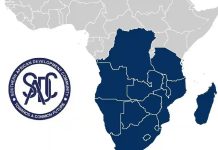Global financier, World Bank (WB) says Zimbabwe’s diaspora remittances which have been grossly affected by the Covid-19 lockdown were not likely to recover anytime soon due to huge problems bedevilling nations hosting the country’s citizens.
In emailed responses to questions sent by NewZimbabwe.com Business, WB said the Southern African nation will take longer to recover than the deadly pandemic itself.
“Just as the pandemic has taken a toll on global economies, the risk that Zimbabwe will take longer to recover is real and may be longer than the pandemic itself since citizens in the diaspora will also need to recover economically before fully managing to take care of financial obligations at home,” WB said.
The financier said part of the causes are that remittances depended on COVID-19 response programme actions in different countries.
“There is no way of accurately predicting how long it will take for Zimbabwe to recover, or what permanent changes to remittances will take place,” said WB.
The bank said other factors that will influence the trend would be reduced value on remittances in exchange rates risk in source countries like South Africa where the rand has fallen against the US dollar, making it hard to send the same US dollar value as was done prior to the crisis.
The World Bank said falling incomes, rising unemployment, lower exchange rate, extended lockdowns in source countries such as South Africa, USA, UK, Canada, Australia and neighbouring SADC countries will affect the remittance trend volumes and values.
Said WB, “This will have knock-on effects for social protection systems in receiving countries – as more households are unable to meet the cost of living.”
Diaspora remittances are a major tool of domestic financing in Zimbabwe, with approximately US$505 million received between January and June last year, while US$699 million was sent to the country in 2017, down from US$799 million in 2016.
A recent report by Zimcodd states that the current lockdown in Zimbabwe, where there is no significant economic activity, will see most families in the country which used to survive on diaspora remittances facing challenges.
The economic equality lobby group said the remittances have been contributing 10% of foreign currency receipts and warned that such disruptions will lead to acute foreign currency shortages.
While maintaining it was still difficult to ascertain the magnitude of Covid-19 on remittances, the financier estimated that globally, a decline of 20 % will be recorded.






